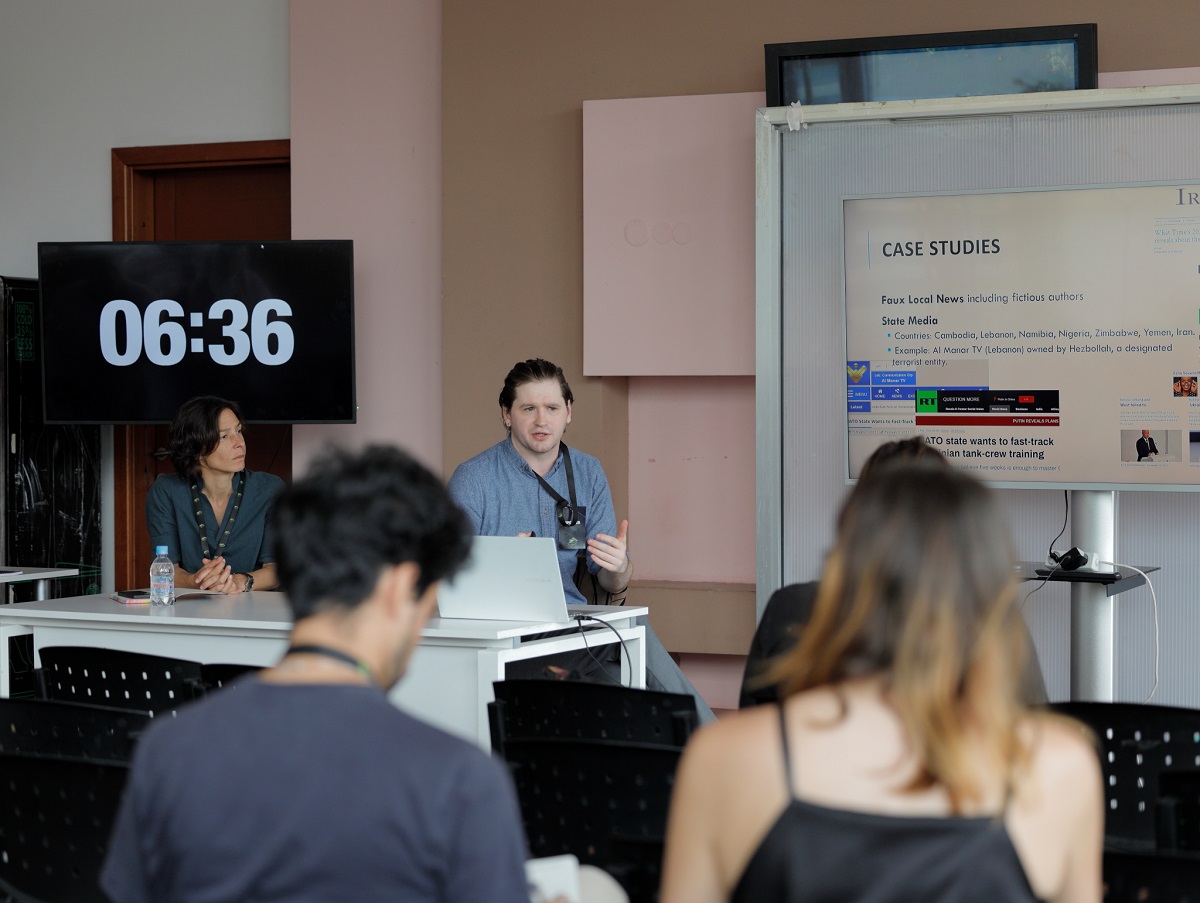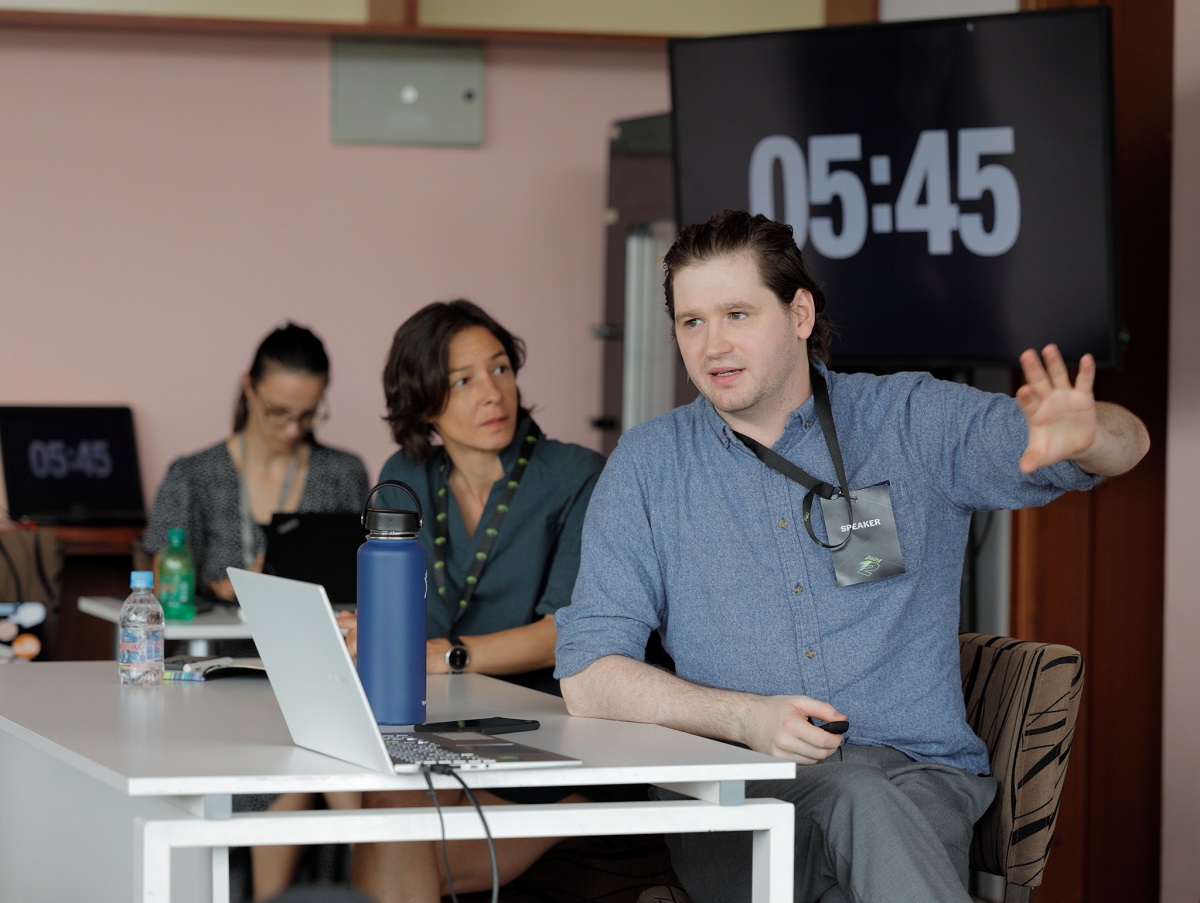Information laundering and the Russian propaganda nesting doll
Peter Benzoni, an investigative data and research analyst on the information manipulation team at the Alliance for Securing Democracy (ASD) presented the Information Laundromat. Using this tool, researchers examined content laundering practices across the web, highlighting the myriad pathways through which content from Russian state media website RT.com reaches audiences in Europe and the United States, despite platform bans and EU sanctions.

During the second day of the 12th Point conference, Peter Benzoni from the Alliance for Securing Democracy held the session “Information laundering and the Russian propaganda nesting doll”.
The focus of his presentation was Russian propaganda and how, in his words, it striked back after the Russian invasion of Ukraine, in the period March 2022 – October 2022.
Articles and informations published by the RT, a Russian state-controlled international news television network, as Benzoni presented, in a process called information laundering, were reposted to third-party websites targeting audiences from Iraq to Ethiopia to New Zealand, often without any indication that the content was sourced from a Russian propaganda outlet.
As Benzoni noted, despite RT being effectively blocked in EU search results, RT content was widely available in Europe when republished on third-party websites whose domains are not subject to sanctions.
Social media and user-generated video sites also play a significant role in the dissemination of laundered RT content in search results. Reddit and YouTube ranked among the 15 most observed domains, even though Reddit has banned all links to RT and YouTube has blocked all channels affiliated with RT. On Reddit, users bypassed restrictions by linking to RT articles posted on mirror or content reposter sites; on YouTube, RT articles were narrated using an automated text-to-speech generator. Those tactics allowed content from RT to not only appear on those platforms but to spread across the open web.

RT articles were republished on state-controlled or state-captured media outlets in Cambodia, Lebanon, Namibia, Nigeria, Zimbabwe, Yemen, and Iran. Many of the sites that regularly repost RT content are not news sites. There are also a number of sites ostensibly focused on wellness, spirituality, and religion that launder RT content—including a site connected to a Christian ministry in Texas, one focused on the rapture, and a “conspirituality” site connected to an alleged human trafficker that blends wellness, new age religiosity, and pro-Kremlin geopolitics.
Benzoni outlined some of the ways this content escapes bans. First, there are mirror and alternative sites that simply replicate the banned content. These are generally controlled by the original site. Then there are aggregators, sites that compile news from different sources and tend to link back to their original source, and copy-and-paste sites that scrape and republish content without verification or attribution. Content from state media will be lifted and republished to third-party websites — including the U.S. right-wing conspiracy-oriented website InfoWars — reaching a global audience. “So they’re able to spread misinformation as though it was news for you, produced by them,” Benzoni said.
One of the problems mentioned by Benzoni was confusion about the original source of information.
At the end, he presented The Information Laundromat, an online, open-source tool designed to uncover content and metadata similarities between and among websites.
Author: Minel Abaz